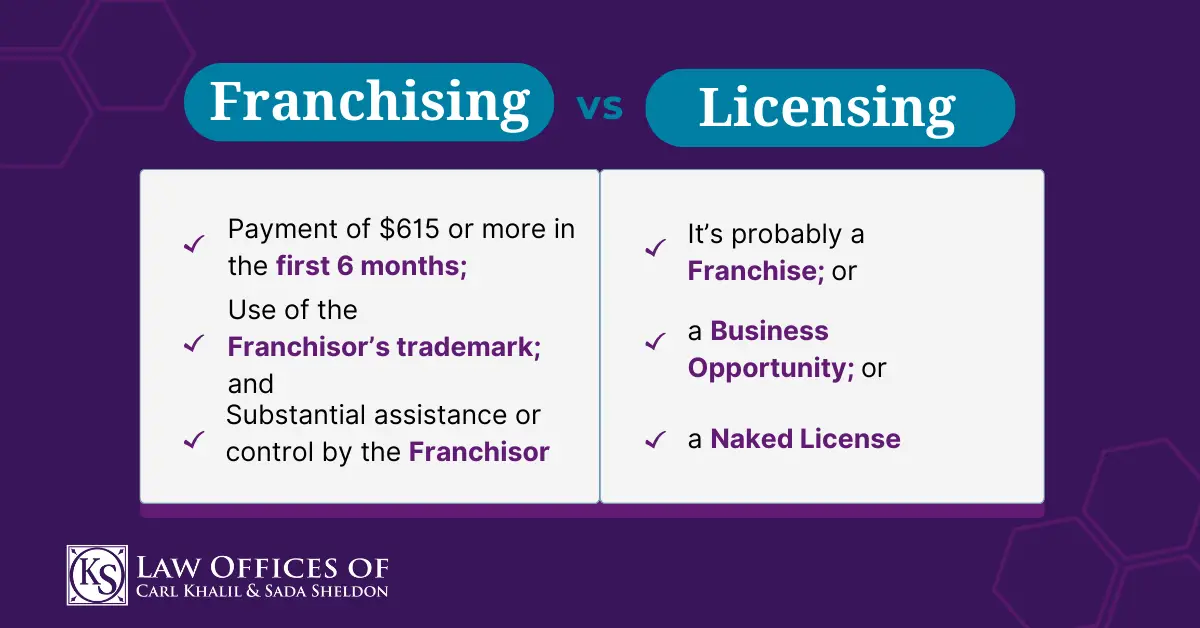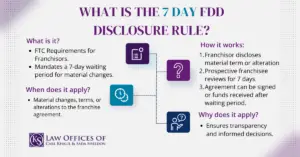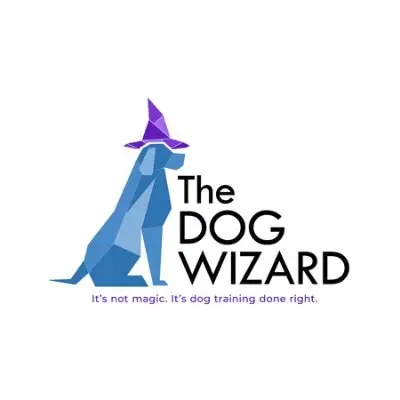What is the difference between Franchising and Licensing?
We often hear from clients that franchising is too expensive and complex. Instead, they want to license their brand to others for a fee.
The difference between a license and a franchise is important to understand when establishing business opportunity relationships. Otherwise, license agreements could be considered illegal franchises.

In general, the licensing of a business format is a “franchise” if the following are true:
- Payment of $615 or more in the first six months to the franchisor or an affiliate;
- Use of the franchisor’s trademark; and
- Substantial assistance or control by the franchisor
All three of these elements are required to be considered a franchise under federal law. States with their own franchise laws may have varying definitions, but they generally mirror federal laws.
New York, for example, defines a franchise as either a “marketing plan” and a “fee” or to be “substantially associated with the franchisor’s trademark” and a “fee.” NY CLS Gen Bus § 681. Therefore, in New York, only a fee and association with a trademark are required to be considered a franchise.
A license agreement, therefore, must eliminate one of the required elements of a franchise to avoid complying with franchise laws.
The Fee – Any required revenue paid to the franchisor could satisfy the payment requirement. License agreements will typically require an initial fee, training fees, or royalty, which most clients are unwilling to forgo.
Use of the Trademark – An express prohibition on using the licensor’s trademark would avoid the franchise requirements in most states. For example, each licensee uses their own business name, e.g., “Mary’s Subs,” “Bob’s Subs,” “Charlie’s Subs,” etc. Generally, this type of business format is not an illegal franchise.
Substantial Assistance or Control – A company may allow the use of a trademark but not offer any significant control or assistance, Control or assistance can include requirements regarding the design or appearance of an outlet, training programs, or providing management, marketing, or personnel advice.
The drawbacks to not offering assistance or placing controls over the licensee are:
- If the licensee is not using the trademark, the company is not building brand recognition or value to the goodwill of its mark.
- If the licensee is using the trademark, the company risks reputational harm to the goodwill of its mark by not providing assistance and maintaining uniformity among outlets. If the licensor doesn’t maintain quality reasonable control over the “nature and quality of the goods and services” offered by licensees, the licensor could lose its trademark through “Naked Licensing.”
- Finally, approximately 26 states and the FTC have varying “business opportunity” laws that require registration and disclosure that could apply to some licensing arrangements. Most states exempt franchises from compliance with business opportunity laws, which can be more burdensome than franchise laws.
Franchising is often the preferred path between compliance with business opportunity laws and Federal and State Franchise Laws because it allows the company to grow a quality brand.
You can read more about the difference between Franchising and Licensing in an article we wrote here.
If you already started licensing, do not worry; we can convert your licensing program to be in full compliance with state and federal franchise laws.
Is it time to franchise your business? Or do you want to learn how we can help you grow your franchise? Please contact us at (757) 263-4596 or click on the link below to schedule a consultation.



















